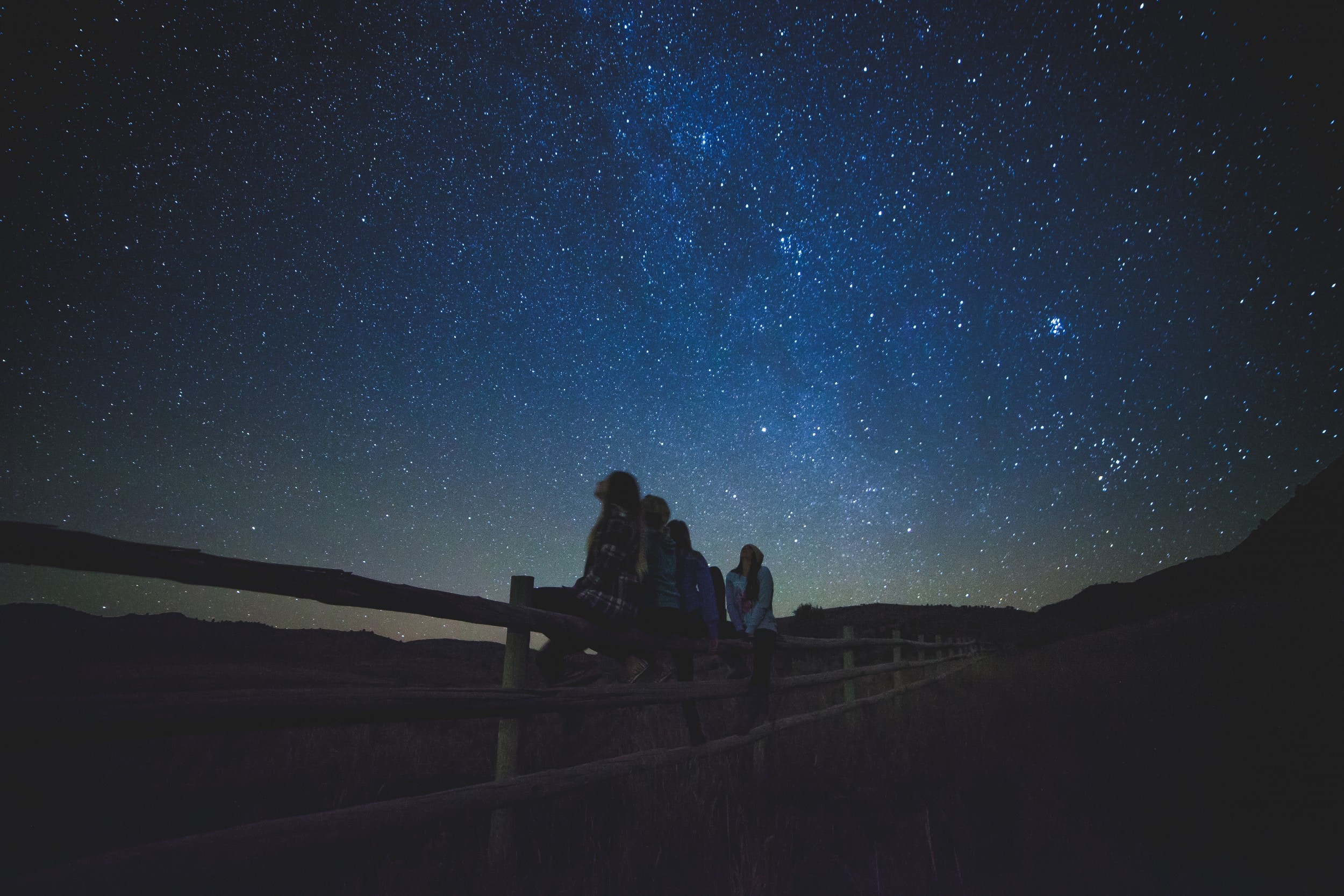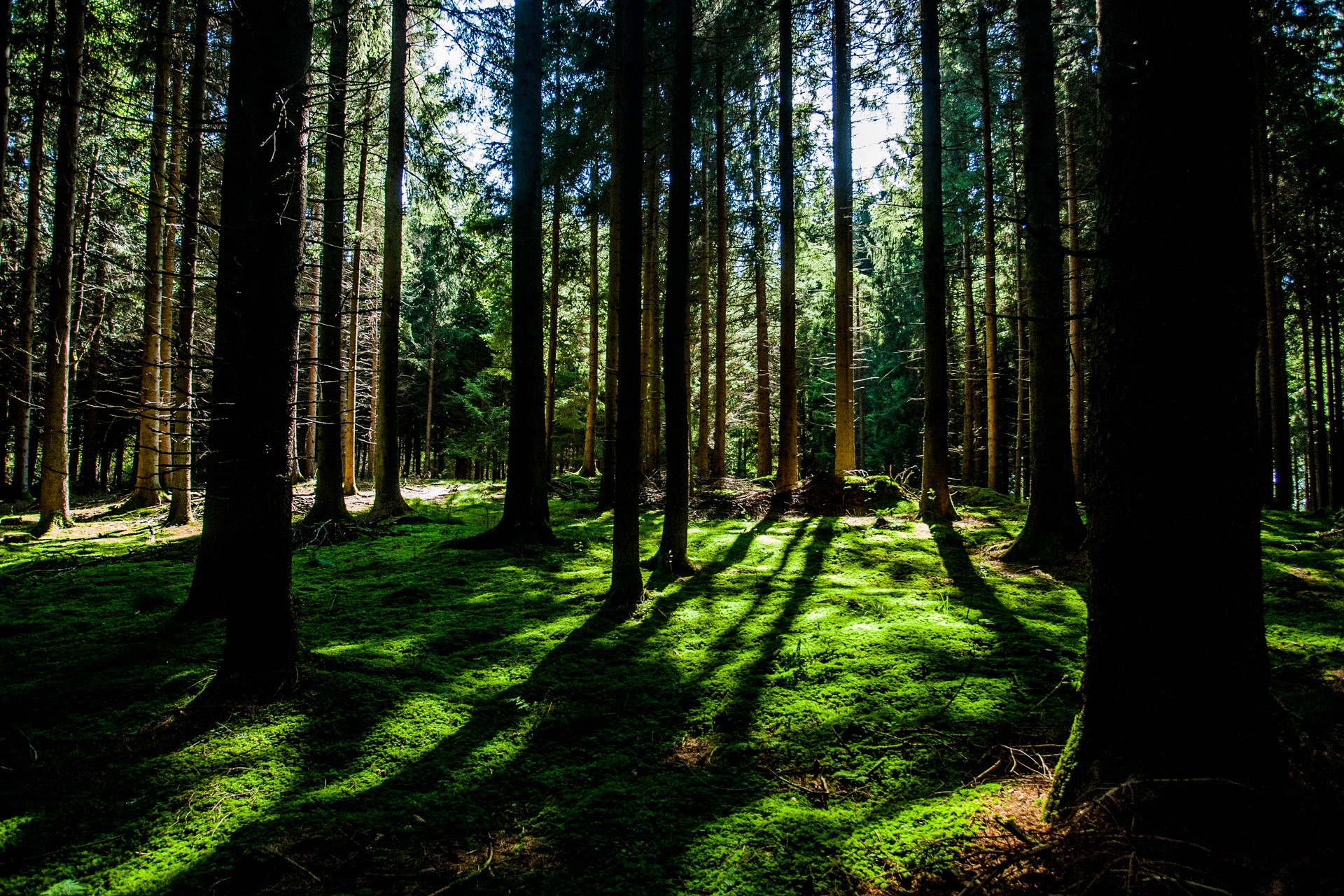We Need a New Story of What it Means to be Human (Part I)
One of the things that make us unique among our Earth-dwelling family members is our inherent need for stories.
By “story” I don’t just mean those that are fictional — I mean the stories we tell ourselves about who we are, why we are here, what we are doing, and what is important to us. They situate us in the world in a way that gives a fundamental meaning and an orientation and direction. Storytelling is sense-making.
Humans require this. The fact is, salmon don’t have a cosmic story that they talk about. Wolves, caterpillars… It’s built into their DNA. They are born into the world, and they know what they are doing. It’s part of their genetic inheritance, it’s inherent to their being. We require stories that are expressed in our culture, so we can find our way forward.
Our reliance on stories that make sense becomes more apparent when things happen to us that render our story incoherent. For example, when someone suffers some sort of traumatic event, that person then likely continues to suffer from trauma, well after they are safe, or the event and danger has passed. PTSD is literally ‘marked by an inability to construct a coherent story of our past’.
Trauma victims are left asking ‘why did it happen to me?’ or ‘could I have done anything differently?’ Many people end up feeling guilt and blame themselves for bad things that happened to them — not because this is a logical thing to believe, but because at least it’s a story that makes sense. The idea that random bad things just happen, completely out of our control, seems to be worse for humanity than believing a story.
In the last 20 years, medical practice has increasingly recognised the importance of storytelling to the patient’s healing. It even has a name: “Narrative Medicine”. Many medical schools such as Columbia University now have Narrative Medicine programs. Columbia’s “fortifies clinical practice with the narrative competence to recognise, absorb, metabolise, interpret and be moved by the stories of illness.”
I would say we are in a period of story break-down, an era that Joanna Macy refers to as ‘The Great Unravelling’. It’s interesting to notice that as many stories that we held so dear in our near-recent human history are unravelling, the rates of mental health problems are rising. Many young people feel they have no way of predicting what the future holds for them. A ‘traditional’ career path feels impossible. And the stories we held true and grew up agreeing to believe are beginning to not make sense next to each other — and sometimes even directly clash.
Photo by Mark Basarab via Google Unsplash
We’re in a chasm between a story that used to function, and we’re in that moment before a new story has gathered enough coherence to function effectively. The stories of the past we regard as important, and we pay utmost respect to them. But we know they don’t actually give us an accurate depiction of reality anymore. We’ve surpassed the level of knowledge and understanding that we had at the time of their creation.
For example… If I spend my life working hard every day, then one day I will have security, and I will be happy. If I go to the best school and University I am able to, I will have the best chance of understanding and thriving in the world. All technology is good, and the more technology we develop, the more our society advances. From observing closely the present, I can predict the future. Life and evolution is based on competition, and evolution works by survival of the fittest. I can be perfectly healthy in a life devoid of contact with Nature. It is important to me to make environmental choices and help protect ecosystems. I like bottled water. The old (but not ancient) stories go on and on.
I also don’t think we’ve quite yet made sense of the immense power we have unlocked in our technology. Or really made a new story that incorporates how we’d like to interact and engage with technology. Technology is good, but then why do so many algorithms seem to leave us feeling depressed and isolated? Can a video call really replace the full-bodied magic of spending time with someone we love? What’s the difference between a childhood spent playing outside in the fresh air and amongst the trees, and another spent on an iPad levelling up in FarmVille? It sounds funny, but honestly do we have the answer? What if computer games enhance cognitive ability? What if running on a treadmill is safer than going for runs in the city?
Do you see what I mean? The stories break down. I spent my time moving amongst groups of people who have a very clear grasp on what they believe. But I think in a time of greater access to information and an explosion in the choices we have in every decision, it becomes harder to cling onto a simple story that used to be easier to keep making sense.
One of our systems I’ve thought a lot about is our food system. Permaculture and small-scale regenerative farming have the power to build soil, restore ecosystems, move away from a dependence on fossil fuel derived agrochemicals, and build up resilient farming communities. Meanwhile vertical farms and hydroponics have the potential to cut down huge transport costs and emissions by bringing fresh salad leaves into the heart of cities, and to save hectares of land. This land could be freed up for ecosystem restoration projects, or left for ‘re-wilding’. What about lab-grown meat? On the one hand, its development could lead to millions of animal lives saved from the slaughterhouse and the awful treatment endured through their short lives. On the other, what is the impact of eating meat grown in a Petri dish? Are there psychological or health impacts that are not possible to predict? If we care so much about cutting down our meat consumption, why don’t we just do it?
Photo by Drew Hays
To continue the technology thread, the questions asked above all take place in a context outside of our economic system. Now comes the human layer: who owns these new technology companies? If lab-grown meat takes off, and the industry is dominated by three huge monolith companies, then what does that do to the distribution of wealth amongst humans? And what happens to the thousands of livestock farmers who are put out of business…
Perhaps it’s time to accept that an increasingly complex world we need to adapt to more nuanced stories. Resist the urge to hone in on the simplest story, the one that is most black-or-white.
But on top of that, it is time for a New Ethic. If not for a moral purpose, the importance of developing a new story based on a regenerated view of ethics seems vital for two reasons: to prevent and reverse ecological destruction and climate change, and to re-establish the role of community, empathy and cooperation among humanity. Human rights and social justice are an essential part of a new story that we can accept, and build a coherent life around.
Deeper than that, how do we build a sense of meaning of our place on this planet? Where do we find our belonging? What is our purpose, and what are the stories we can trust? What makes a ‘whole’ human being — a sense of connection, meaning, purpose, self-worth, justice, community, belonging, and a sense of love for this planet, this one short life, and humanity at large?
Photo by Cam Adams via Google Unsplash
We’re done with a certain phase of our existence, and we’re in that exciting moment of entering into a new way of being human, which requires a new story.
Our stories define us but they shouldn’t limit us. The great thing about a story is that it only exists as much as we believe it.
So it is ripe time for a new story, one that allows us to integrate all parts of what it means to be human today. The new story I (and many others) envision is one that is deeply Human, with Nature at the forefront, and Technology by our side. A unique golden braid of Humans, Technology and Nature, and now it is up to us to work out how these three interact and support each other in creating an integrated, diverse and holistic future.
Why do I find it important to integrate these three elements? Because they are all important to us. Human connection, empathy, social justice, equality, kindness, freedom, cooperation, community, care, collaboration… These are all part of being human. They are important to us. They are part of what MAKES us human. Think about it... What do you really value about being human? Where do you find your 'humanity'? What makes you 'humane'?
Connection to Nature, of which we are a part of, is important to us. Nature, and the study of Nature through science, is continuing to show and teach us how best to live on this planet. We are not as isolated from non-human species as we would have liked to imagine — in fact ‘we’ are only two-thirds human — the rest is a flourishing bacterial community!
Photo by Sven Schlager via Google Unsplash
Technology — why technology? Because it’s here to stay. And because technology used with awareness and responsibility has the potential to elevate the quality of life for humans worldwide. Technology has the potential of aiding us on our mission in this moment of cleaning up and re-building our soils, regenerating entire eco-systems, returning power to disempowered communities, decentralising power, allowing mass communication and collaboration, and actualising human creativity.
I see technology as part of our transition story — but we need to create a future that isn’t wholly reliant on technology. If tech can help us rebuild our soils, great… But once we restore the planet to a liveable future, how much would we like as part of our lives? This becomes an even more important question when one starts to think about the really disruptive technologies, like A.I., genetic engineering and enhancement, nano-robotics, brain-computer interfaces… But let’s keep it simple for now.
Humans - Nature - Tech.
How do we get there?




